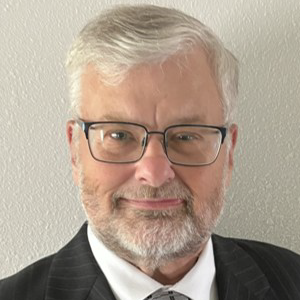New Industry-Standard Certification Added to Engineering Degree Program
The FAMU-FSU College of Engineering’s Master of Systems Engineering (MSSE) program has a new benefit for engineers wanting career-boosting certifications and advanced degrees. The International Council on Systems Engineering (INCOSE) announced today that courses required for the joint college’s MSSE degree have been recognized as equivalent to the certification knowledge exam for Associate Systems Engineering Professional (ASEP) and Certified Systems Engineering Professional (CSEP) certification.
This additional, prestigious recognition for MSSE graduates who complete the coursework and certification process before graduation can provide valuable professional skills and recognition for professionals working as systems engineers. The joint college’s recognition is the first time a Historically Black University (HBCU) institution’s coursework has been recognized.
“Adding this additional—and professionally very valuable—INCOSE component to our systems engineering master’s program is a win-win for the college and our students,” said Suvranu De, dean of the FAMU-FSU College of Engineering. “The degree itself is a vital part of advancing an engineering career, and graduating with INCOSE is an added benefit that will pay dividends for our students almost immediately.”
MSSE students who do well in the college’s MSSE courses assessed to have Academic Equivalence (AcEq) can bypass the certification knowledge exam when applying for ASEP and CSEP Certification. The INCOSE Certification Program’s volunteer reviewers have recognized the assessments they complete through their existing coursework as an equivalent alternative to the standardized test developed by INCOSE.
“I am especially proud of this industry certification which demonstrates the quality of the MSSE academic program and its commitment to industry needs,” said Randy Hanna, dean of FSU Panama City, where the program’s faculty work.
Academic members of INCOSE’s Corporate Advisory Board can offer Academic Equivalency upon recognition by the INCOSE Certification Program. Candidates who apply through AcEq must still meet all other INCOSE certification requirements, including individual membership and payment of application fees.
“Universities recognized as having Academic Equivalency show commitment to offering their students a systems engineering education aligned with the INCOSE Systems Engineering Handbook,” said Courtney Wright, INCOSE Certification Program Manager. “The program at the FAMU-FSU College of Engineering will bring the current best practices of systems engineering to their students and introduce them to continued professional development through INCOSE.”
The FAMU-FSU College of Engineering Master of Systems Engineering program is the fastest-growing graduate program in the history of the college and part of the Department of Industrial and Manufacturing Engineering graduate degree program offerings. The program is administered out of the Florida State University-Panama City campus in Panama City, Florida and led by Danny Georgiadis, Ph.D. and David Gross, Ph.D.
About the International Council on Systems Engineering
The International Council on Systems Engineering (INCOSE) is a not-for-profit membership organization that promotes international collaboration in systems engineering practice, education, and research. INCOSE’s mission is to “address complex societal and technical challenges by enabling, promoting, and advancing systems engineering and systems approaches.” Founded in 1990, INCOSE has over 65 chapters and over 23,000 members and associates worldwide. For additional information about INCOSE, visit www.incose.org.
About the INCOSE Systems Engineering Professional Certification
Certification is a formal process whereby a community of knowledgeable, experienced, and skilled representatives of an organization, such as INCOSE, confirms an individual's competency (demonstrated knowledge, education, and experience) in a specified profession. Certification differs from licensing in that licenses are permissions granted by a government entity for a person to practice within its regulatory boundaries. Certification also differs from a “certificate” that documents the successful completion of a training or education program.


